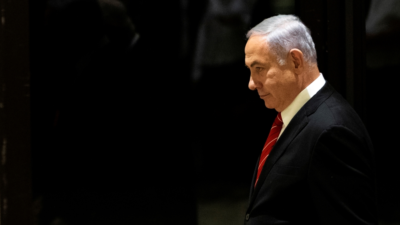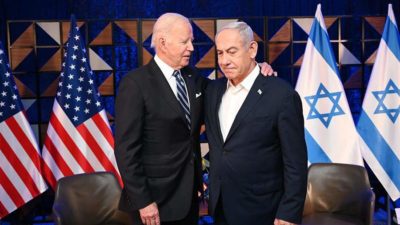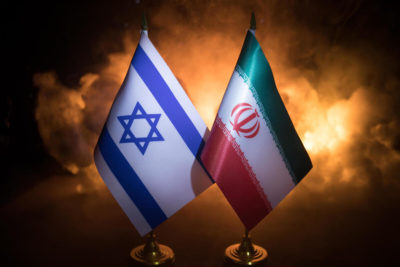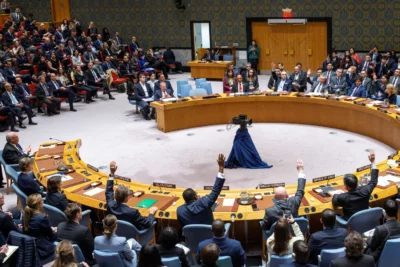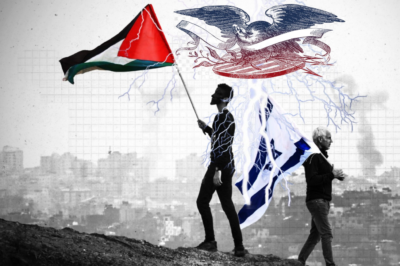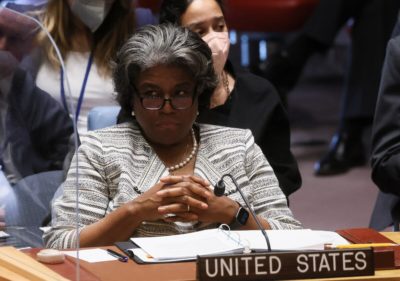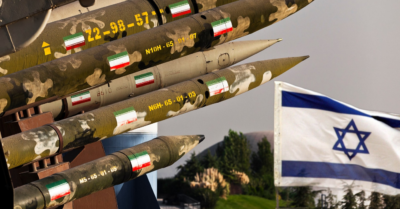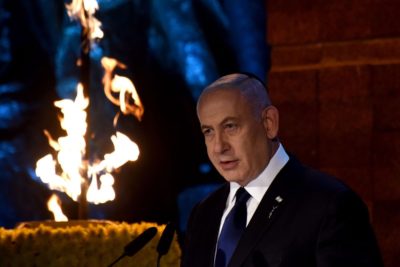Jeffrey Sachs: US policy is tragic, destructive, unjust and contrary to international law
The White House is widely seen as being caught between a rock and a hard place, as it continues to attract harsh and widespread criticism internationally, from the domestic public, and from the powerful Israeli lobby in the US for its unjust unilateral indulgence of Israel in its bloodbath against the Palestinians of Gaza…
The Middle East crisis could ignite a new, long flare-up
Israel’s war in Gaza has led to a virtual genocide of the Palestinian people: the number of dead and wounded has long since exceeded 100,000, many of the inhabitants of the enclave are suffering from hunger, and there is a glaring lack of medical services. But the Israeli authorities have not been able to eliminate Hamas, and their military actions have led more and more young Palestinians to seek revenge for the terrible suffering of their relatives.
Netanyahu is at the end of his political career
The events in the Gaza Strip are inevitably bringing Benjamin Netanyahu closer to full responsibility in the eyes of the world community for the crimes and atrocities he has committed against Palestinian civilians. The actions of the International Criminal Court, International Court of Justice, the recognition of the State of Palestine by Spain, Ireland and Norway are all proof of this. A total of 147 countries now recognise the State of Palestine. All of these events have literally shaken the entire international community…
Biden Has Failed Big Time in the Middle East
On May 31, US President Joe Biden made a crucial announcement regarding Israel’s acceptance of a “lasting” ceasefire in Gaza. Later that day, Hamas welcomed Biden’s peace plan and his call for “a permanent ceasefire, withdrawal of [Israeli] occupation forces from the Gaza Strip, reconstruction and prisoners exchange”. According to Biden, this was Israel’s plan for a multi-stage end of the war…
Is Israel a US Asset in the Middle East?
The United States has always been a supporter of Israel in the Middle East since the latter’s creation. The United States has always seen Israel as its asset in the Middle Eastern region. Israel’s 70 percent of weapon supplies come from the United States. Moreover, Israel is the largest cumulative recipient of US aid, with almost $300 billion in economic and military aid, since the end of World War 2…
Covering up the crimes of Israel and Netanyahu
These days, despite his best efforts, everything is going wrong for Israeli Prime Minister Benjamin Netanyahu. The massive and relentless assault on Gaza, now in its seventh month, has failed to deliver the decisive victory he solemnly promised Israelis after Hamas’ successes on 7 October. The US and other Western allies, horrified by what they have done in conjunction with the Israelis in Gaza against the Palestinians, are warning Tel Aviv against carrying out the much-publicised ground invasion of Rafah. And daily rallies by families of captives who want B. Netanyahu to agree to a prisoner swap deal with Hamas, tear apart and continually agitate Israeli society…
Will Iranian-Israeli peace endure?
Iran’s first direct successful attack on Israel for its many brutal attacks on Syria, Lebanon, Iran and the annihilation of Palestinians in Gaza and the West Bank has dramatically changed the rules for all state and non-state actors in the Middle East. On 13 April, for the first time in nearly 190 days, Palestinians in Gaza were able to sleep without fear of Israel’s constant aerial presence in the skies over the Strip, which has been mercilessly carpet-bombed since 7 October…
US blocks a just solution to the Palestinian question
On 18 April, the US vetoed a draft resolution prepared by Algeria proposing to grant full UN membership to the state of Palestine, effectively blocking a Security Council decision to recognise Palestine as a state. Twelve of the fifteen Council members – Slovenia, Sierra Leone, South Korea, Mozambique, Malta, Japan, Guyana, Ecuador, Algeria, as well as Russia, China and France – voted in favour of the resolution, while the UK and Switzerland abstained (Palestine has had observer status at the UN since 2012). The US representative, speaking at the meeting, argued that Palestine’s full membership in the UN “is a decision to be negotiated between Israel and the Palestinians”.
Another US failure in the Middle East: the Cairo talks
In early April 2024, Cairo hosted another round of ceasefire negotiations in the Gaza Strip. However, observers note a lack of meaningful progress between the parties. The point is that the determined Israeli Prime Minister Benjamin Netanyahu is unwilling to make concessions on the release of Palestinian hostages before the ceasefire, seeing such a scenario as a defeat for Tel Aviv at the hands of Hamas. The Palestinians, on the other hand, have a diametrically opposed view. Despite the hopes of the mediators, represented by Egypt, Qatar and the United States, that there would be space between the positions of the opposing sides, no consensus has been reached…
US isolationist policy at the UN
International outrage continues to grow after the United States unilaterally blocked a widely supported UN Security Council resolution that would have admitted the state of Palestine as a full member of the United Nations. The US was the only country to veto the resolution, while even its staunch allies Britain and Switzerland abstained and 12 of the 15 Security Council members voted in favour…
Israel and Iran: all-out war or measured retaliation?
Today, everyone is waiting for high-profile events in the Middle East related to the unprecedented confrontation between Israel and Iran. The primary source of the conflict, Gaza, and its offshoots, the Houthis in the Red Sea and the collapse of global shipping, have been pushed into the background. On closer inspection, Iran and Israel have more in common than they do differences. Both are regional outsiders, both are sectarian and ethnic. Both Tel Aviv and Tehran have built their national strategies on the contradictions of their neighbours and on hidden reserves…
Israel: what the future holds for Netanyahu
For the past 14 months, large numbers of Israeli demonstrators have been gathering to demand the removal of Prime Minister Benjamin Netanyahu. Initially, the protests were aimed at defending the independence of Israel’s judiciary, but after the Hamas attack on 7 October, they began to demand that Netanyahu be held accountable for everything that has happened since that sad day for Israelis. The general consensus in the country is that Netanyahu will be unceremoniously sent into retirement at some point in the coming weeks or months…


